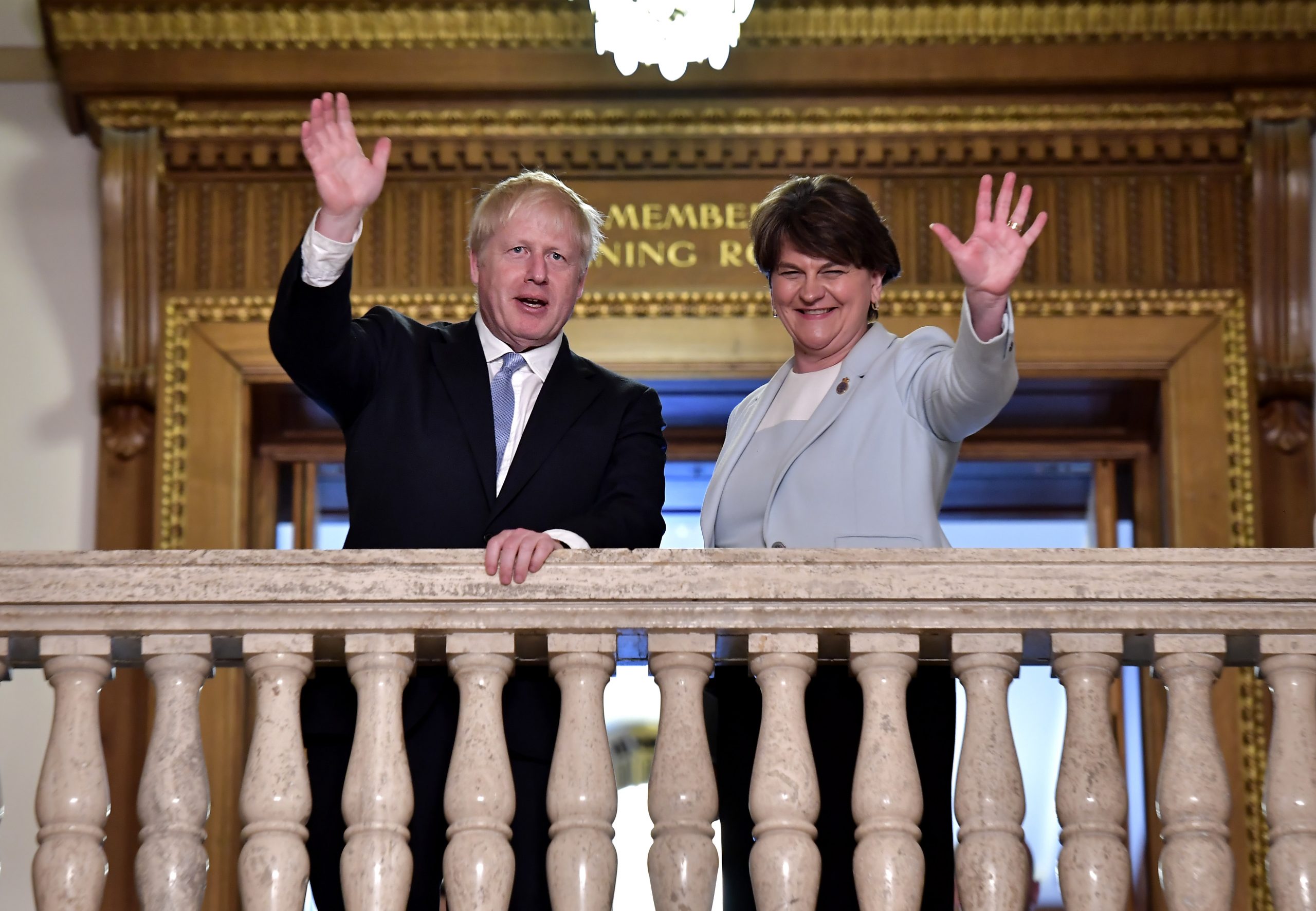
Today’s Conservative leadership hustings in Belfast were always going to be an odd affair. The party’s branch in Northern Ireland has only 500 members and musters barely more votes. Whether or not Jeremy Hunt or Boris Johnson satisfied their small audience this afternoon will make little difference to their chances of victory – or, for that matter, a successful premiership.
Instead, the candidates – like Theresa May before them – have concluded that they must satisfy the demands of another Northern Irish party: the DUP. Both Hunt and Johnson made the case for doing so this afternoon, to the audible disappointment of activists who are understandably peeved at their treatment as, at best, a sort of fan club to be occasionally indulged, and, at worst, an embarrassing encumbrance to be actively avoided.
Each contender was asked repeatedly why they had prioritised the DUP over their own party. Arlene Foster, don’t forget, is technically speaking an electoral rival of the Northern Ireland Conservatives. But both Hunt and Johnson gave the same answer in reply: without her ten MPs, we have no majority. Sorry, not sorry.
That brute fact of Commons arithmetic also goes some way to explaining the candidates’ respective stances on Brexit. Both advocate denuding the withdrawal agreement of the Irish backstop and replacing it with untested technological solutions as a bare minimum. Doing so is both the price for DUP support and, more importantly, the only thing to have delivered a majority while keeping the government’s parliamentary coalition largely intact.
Everything Hunt and Johnson say about the backstop stems from that political reality, which is why their most important engagement in Belfast this afternoon was not the hustings but their respective meetings with the DUP leadership. It also explains the hard line Hunt took when asked about his Brexit policy. “We are never going to have a deal with the EU that involves the backstop,” he said. “It has to change, or it has to go.” Part of his plan to achieve this is with a new negotiating team, which would include – you guessed it – members of the DUP.
There is, of course, an inevitable but: the DUP isn’t the only political party in Northern Ireland. Yet politics means it is the only one to take its seats in the Commons and as such it is the only party to really matter to the Conservative Party, particularly one that lacks a majority of its own.
There are plenty of arguments to be made against the governing party of the United Kingdom ending up in such a position. The Good Friday Agreement demands “rigorous impartiality” from Downing Street when it comes to Northern Ireland’s politics and internal affairs, and an umbilical relationship with the leading party of one community or another naturally impedes that. As prime minister, Hunt or Johnson will inherit obligations that go above and beyond – and often stand in opposition to – their party political interests. The Good Friday Agreement is one of them.
Much of the criticism of what the candidates say on Northern Ireland – or rather, their equation of its interests with those of the DUP – takes that abrogation of constitutional duty as its starting point. This debate will be had as long as there are MPs from Northern Ireland in the Commons. But when it comes to judging Johnson and particularly Hunt’s plans to broker a compromise with Brussels, it is much less relevant than you might think.
What matters much more than the broader morality or lack thereof of any plan to build a border policy on the back of Nigel Dodds is its stupidity. Both of the candidates, and most of their parliamentary party, agree that the future of the frontier is primarily a political question. Let’s accept for a moment that it is. Do the dimensions of the question change? Is outsourcing the answer to the DUP any wiser if you have an eye on a deal with Brussels as well as your majority at Westminster?
For Brussels and Dublin, the answer offered by Northern Ireland’s electorate is a clear no. Two of the three MEPs they returned in May support the backstop, and parties of the same position won 57 per cent of the vote. For that reason there is little chance of the movement both Hunt and Johnson believe they can force, despite the vagaries of results elsewhere. Conservative MPs who want to deliver Brexit should worry much more about the success of Northern Irish MEP Naomi Long than Nigel Farage. But on this afternoon’s evidence, very few of them would even understand that sentence.






